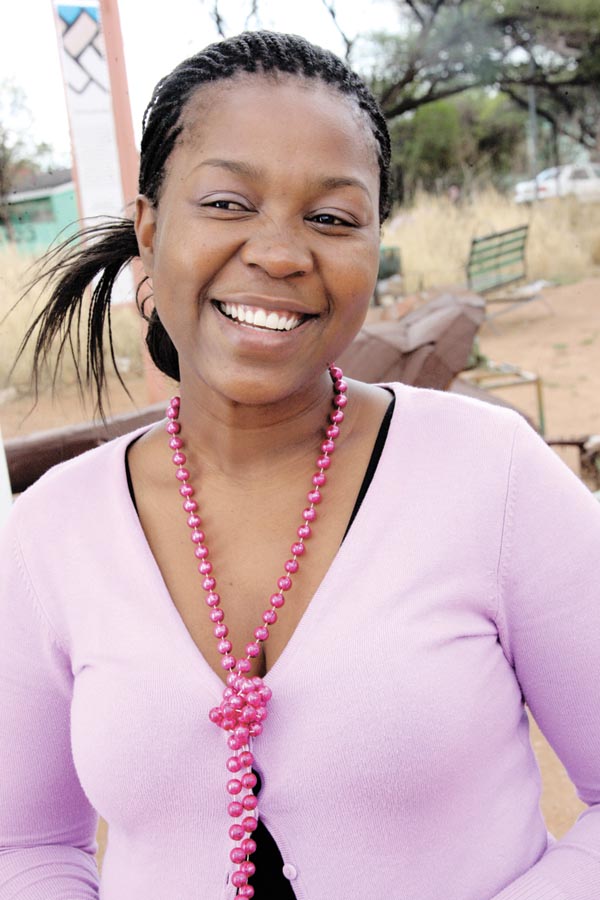GastrosexualsÔǪ cooking up a ÔÇÿstorm!ÔÇÖ
Source : Kutlwano
Author : Aron Moreeng
Location : Gaborone
Event : Research
However, it seems the dining tables have turned as increasing numbers of men take up cooking in a bid to impress and seduce women.
That tension that used to exist between cooking and masculinity has thawed out.
It has now become perfectly acceptable for men to show a passion for food.
The growing importance of men in the nations’ kitchens is slowly coming into vogue.
Research shows that men appear to like being in the kitchen more than ever before.
The likes of celebrity chefs’ Jamie Oliver and Gordon Ramsay are continually on televisions cooking a storm.
Closer to home, McJon Mosenene and one-time Btv celebrity chef, Kingsley, are some of the well-known chefs, who, in one-way or
the other, have inspired more men to take cooking for their partners as a must-do.
A television programme, Masterchef, has also stimulated men to try their luck at cooking.
Dubbed the gastrosexuals, this new generation of men consider cooking more a hobby than a household chore and use their kitchen prowess to impress friends and prospective partners.
This group of keen and accomplished male cooks is mostly upwardly mobile men, masculine, aged between 25 and 44 years and is passionate about cooking and the rewards thereof.
Pleasure, praise and potential seduction remain some of the rewards.
Hence, men having the ability to cook are also nowadays a key factor in attracting women along with salary, status, personality and appearance, according to a British research.
Consequently, the argument seems to be a hit with many women locally.
A number of them maintain that such a person is a real man.
They argue that as a woman, you will feel free and assured to leave him with the kids, cook for them and not feed them fatty takeaways.
A man who can prepare you breakfast in bed and prepare a Sunday lunch for the whole family instead of the usual, “where is my food”.
“I will never settle for a man who treats me to takeaways every day,” says Wamatsha Sepako who is in her early 30s.
For her, it is seductive to wake up to your man’s meal.
A meal, specially cooked for me, she states.
Sepako argues that a man who can cook is very romantic.
That not withstanding, research has shown that men’s relocation to the kitchen and growing confidence with food are partly the result of a flood of social forces.
This has also been attributed to a very substantial growth in single person households.
““This new ‘singleton male’ has taken to cooking out of necessity but uses it as a way to show his modernity and, in some cases, to attract women,” researchers say.
Adding on is Ginnie Van Meester who maintains that a man who knows how to cook is most likely to be a good lover too. “Patient in foreplay. He takes his time preparing you like he does all the ingredients for a sumptuous meal. A total romantic,” she argues.
Van Meester upholds that with such a man, you will even work shifts knowing that the children will not be served porridge for both breakfast and supper.
Eminent food writer and historian, Dr Paul Levy explains thus, “in terms of cooking in the home, there always was a pronounced divide between the sexes in most cultures ever since people started cooking for the family.”
It is not surprising that cooking itself has changed and taken on more prominence and extra meaning.
It has since come to express men’s passion for self-actualisation and it has come to be integrated into gender identities and relationships.
The British research, nonetheless, states that the emphatic arrival of men into thenations’ kitchens is an under appreciated revolution.
As late as the 1970s it was almost unheard of for men to take on an active share of the cooking in their own homes.
Since 1961 men have increased the time they spend cooking and washing up by more than five times.
Men’s interest in food has been transformed.
“It shows that cooking which was once considered somewhat unmanly – effeminate almost, isnow something which is open and welcome to people from all parts of society,” says the research.
Nevertheless, Tshepo Matlapeng argues that even though it is a nice thing to have a man who cooks really well, women should be careful when they cook for such men.
“He will expect a really good meal or else he will keep condemning your food. He should know how to cook but as a woman, I should cook better than him,” argues Matlapeng.
She maintains that men who know how to cook are quick to complain about spices, too much salt and some minor stuff.
Echoing the same sentiments is Opene Motswetla who opines that though a man who cooks is sexy and a total romantic, the challenge is to keep up the pace with him.
As a woman, she argues, “you will have to always tense up to outdo your man least he condemns your food”.
Whichever way, research shows that men are doing a greater share of cooking in their homes than in any point for which records exist.
Younger men, both singletons and those living with their partners, are playing a far greater role in the kitchen than their fathers did. And what is more is that they enjoy this greater involvement.
This is a passion and leisure activity for this new generation of men in the kitchen.
Kentse Mmofhe, however, begs to differ.
He will never cook for his woman unless she is very sick.
A patriarch to the core, Mmofhe says a woman’s domain is in the kitchen while the man’s role is to provide.
“That will be witchcraft of the highest order for me to cook for a woman. Can she slaughter a goat while I am home reading a newspaper?” he asks.
Wilma Montshioa does not mind as to who is better than the other between men and women when it comes to cooking.
“As long as I satisfy him where it matters most, I am cool,” she quips.
For her, after all the cooking and eating, it is very important to burn the excess calories.
Teaser:
From an historical perspective, men have generally had relatively little involvement in the preparation of food. The adage has always been; “the way to a man’s heart is through his stomach” and therefore, women cooked up a ‘storm’ to keep their men.
















